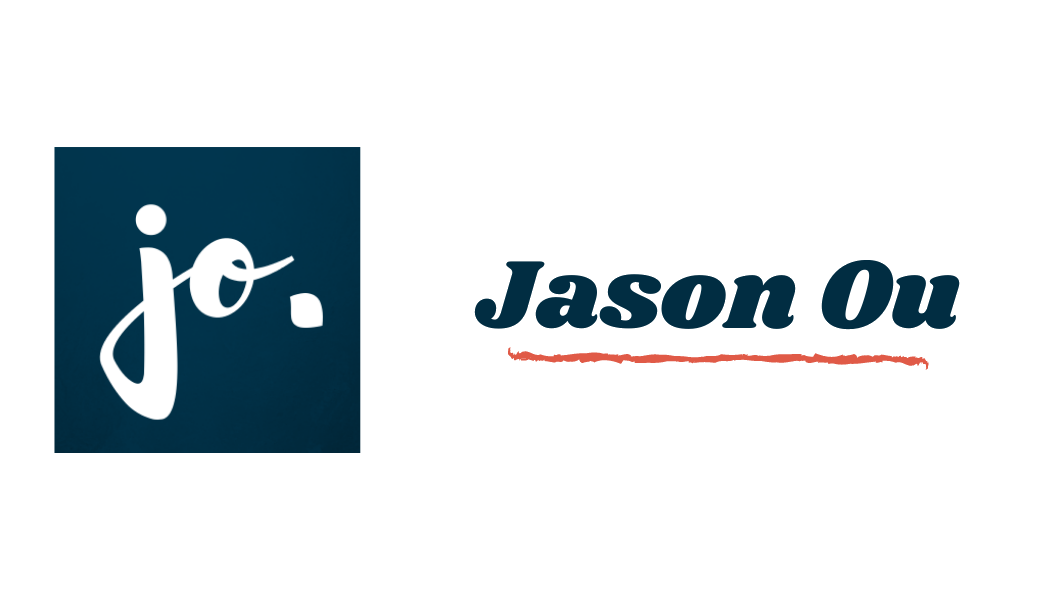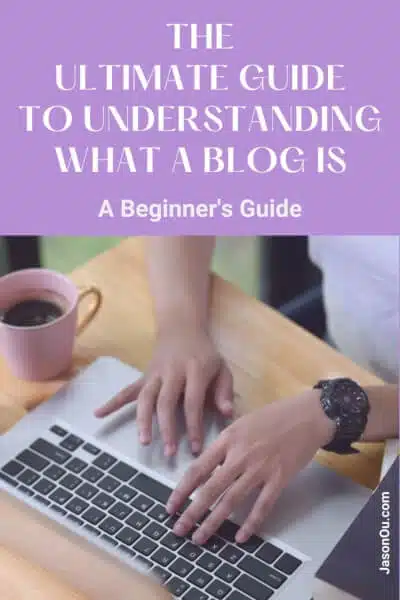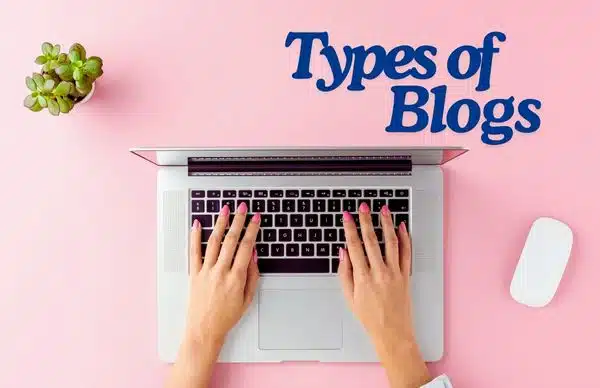When starting a blog, picking the right blog niche is super important.
If you choose a niche with little commercial value, like chess, you might struggle to make money.
Not many people are buying products in such niches.
On the flip side, if you choose a highly competitive niche that needs professional knowledge, like the medical field, but you’re not an expert, your articles won’t rank well on search engines.
Google’s Medic update in August 2018 made this even tougher.
If you want to start a blog, let me explain how to choose a profitable blog niche in 2025 … and in two step.
Ready to Learn How to Start a Thriving WordPress Blog? Click Here Now
Key Takeaways
- A blog is an online journal that gets updated often with new posts.
- Blogs can be personal, business-related, niche-focused, or multimedia.
- Starting a blog involves choosing the right platform and knowing your audience.
- Good blogs have a clear layout including headers, main content, sidebars, and footers.
- Blogging can build relationships, enhance visibility through SEO, and offer ways to make money.
Defining a Blog
Save/Pin the image below👇because I often update my posts. So stay informed with this blog “What is a Blog” and save it.
Definition and Core Elements
Blogs are like online diaries that get new stories often.
They have places for readers to leave comments, making them great spots for people to connect and share ideas. A blog can be about you or your business.
It reflects who you are or what your company does.
Blogs have a special setup. A top part for finding your way around, the main story area, side parts for extra info, and a bottom section with more details.
You might write about anything from daily life in personal blogs to sharing tips on how to use products in business blogs.
Every post sits nicely on its page but also lines up with other posts so readers can easily find older stories.
This setup helps search engines like Google find your blog when people look up stuff online.
Using the right words in your posts makes it even easier for folks searching the internet to stumble upon your blog.
Plus, regularly adding new stories keeps visitors coming back and encourages more folks to join in through comments and shares on social media platforms such as Facebook, Instagram, or Twitter. And even Pinterest.
Blog vs. Website: Key Differences
Blogs and websites serve different purposes online.
A blog is like a diary that gets updates often with new entries.
Websites act more like a book, offering fixed information. Think of blogs as having a heartbeat, always bringing in fresh content to keep people coming back.
This makes them great for search engine optimization (SEO), helping your site rank higher on Google.
On the other hand, websites are the foundation where businesses build their presence online but might not change much day-to-day.
Websites often include an internal section for blogging to combine stability with dynamic updates.
This strategy helps drive web traffic and build authority in their field. For example, I started my own blog within my website using WordPress, one of the most popular content management systems (CMS).
It allowed me to share useful content and connect with my audience regularly while still providing static information about my services on other pages of my site.
By doing this, I noticed an increase in leads and customers because my posts were full of keywords related to my work, making it easier for potential clients to find me through search engines.
Types of Blogs
From personal diaries to expert advice platforms, there’s a blog for every interest! So let’s look at a few of them.
Personal Blogs
Personal blogs are your space to share life’s adventures, thoughts, and experiences.
Think of them as your digital diary where you can connect with friends, family, and even strangers across the globe.
For instance, “The Blonde Abroad” is a fantastic example of how personal travel stories can inspire others to explore new destinations.
These blogs are unique reflections of the writer’s personality, making each one special.
In personal blogs like “Not Another Cooking show,” bloggers mix various topics under one umbrella – food in this case.
They use platforms on the web to reach their audience through posts that feel like sitting down for coffee with a friend.
Here, direct interactions become valuable content that engages readers and fosters an online community around shared interests or lifestyles.
Such spaces offer endless possibilities for creativity and connection in the vast online world.
Business Blogs
Business blogs play a big role in the online world. They update customers, help with marketing, and make SEO better.
Think of them as a bridge connecting companies and their audience.
B2B marketers who use blogs get 67% more leads. That’s huge!
By sharing info about their industry, these blogs also set up businesses as experts.
Starting a business blog requires some steps to follow. Pick the right blogging platform like WordPress is a good choice because they’re easy to use.
Next, figure out who you want to read your blog. This will guide what you write about and how you talk to your readers.
Your goal is not just selling products but building relationships through valuable content on web design, SEO, or whatever fits your industry best.
Niche Blogs
You can dive deep into special topics like cooking, bird watching, astrology, home decor, globetrotting, or knitting.
They’re perfect for sharing your passion with the world. Picture a web design start-up that uses its blog to improve SEO and attract more customers.
That’s niche blogging in action.
These blogs let you target specific groups who love what you love.
Whether it’s the latest vegan recipes or tips for backpacking across Europe, your blog can become the go-to spot for those interests.
Creating content on these focused subjects helps establish you as an authority figure in your field.
For example, if you regularly post about sustainable fashion, readers will begin to see you as an expert on eco-friendly clothing brands and practices.
This builds trust and loyalty with your audience, making them more likely to return for advice and recommendations.
Plus, by using keywords related to your niche like “sustainable fabrics” or “ethical fashion brands,” you boost your site’s visibility in search engine results pages (SERPs), drawing in even more readers interested in what you have to say.
Multimedia Blogs
Multimedia blogs catch your eye with photos, videos, and sometimes even podcasts. They mix these elements to tell stories in a lively way.
Think about HubSpot. It covers marketing, sales, and service topics through engaging posts that might include how-to videos or interviews.
This kind of blog grabs attention because it’s not just text on a page. People love seeing and hearing the information too.
Creating content for multimedia blogs involves tools like cameras for high-quality images and software for editing videos and audio clips.
You get to share experiences directly with your audience.
For example, if you’re blogging about travel, showing a sunset you watched in Bali through a video can make readers feel like they’re there with you.
This personal touch builds stronger connections between bloggers and their audience.
Importance of Blogging
Blogging opens doors to new connections, boosts your online visibility in search engine results, and can even turn into a source of income for you.
Building Relationships and Community
Building strong relationships and fostering a sense of community are key aspects of successful blogging.
Your blog posts can serve as a bridge, connecting you with your target audience on a personal level.
Share industry information to show your expertise and use the comments section to engage directly with readers.
This interaction helps build trust and establishes your blog as a go-to resource.
Blogs facilitate interaction and relationship building.
By consistently sharing valuable content that resonates with your audience, you attract more visitors who are interested in what you have to say.
Use social media marketing and Pinterest blogging to extend the reach of your blog posts, inviting more people into your community.
Engaging content paired with effective SEO techniques boosts online presence, making it easier for new readers to find you through search engine rankings.
Enhancing Visibility and SEO
Making your blog visible online is a big deal. You want people to find and read your posts, right?
SEO, or search engine optimization, helps a lot with this. Think of SEO as signs on the internet that lead readers to your blog.
By using the right keywords in your blogging niche, you’re putting up more signs that say “Hey, come check out my blog!”.
Now let’s talk about how blogs help rank on search engines.
Say you’ve lasered in on a profitable blog niche, and decided to post regularly about it.
Over the year, you blog useful tips which also include keywords in them.
Over time, more people visit your site, and other companies start linking to it to share with their readers.
When this happens, search engines sees your company as a trusted source and think your post might be helpful to someone searching for those terms.
After lots of trial and error, your blog posts will start showing up on the first page of Google for the keywords.
The better your content matches what people are looking for, the higher it will appear in search results.
So keep writing great stuff and use those keywords smartly.
It’s like telling search engines directly what you’re talking about so they can suggest your blog to others looking for information on those topics.
Without a doubt, keyword research is important.
But.
Using keywords in your blog alone is not enough. You need to promote it.
More on that later.
Monetization Opportunities
Bloggers have many ways to make money from their sites.
You can use ads, join affiliate programs, write sponsored posts, and sell products or services.
This means you control what goes on your blog and how you earn from it.
If you start a blog about web publishing tools or blogging software, for example, showing off those tools in action can attract advertisers who want to reach your audience.
Even early in your blogging journey, there’s money to be made.
Placing digital ads through programmatic advertising allows you to earn every time someone clicks on them.
Affiliate marketing is another smart move. You recommend products and get a commission when your readers buy them using your link.
As your blog grows in popularity and content quality improves, opportunities for sponsored content and direct partnerships with brands will also increase.
This approach brings in income and helps establish your personal brand as an authority in your niche.
Whether it’s user experience design or political blogs, it opens the door for even more monetization strategies down the line.
Starting Your Own Blog
Ready to Learn How to Start a Thriving WordPress Blog? Click Here Now
Ready to Learn How to Start a Thriving WordPress Blog? Click Here Now
Identifying Your Audience
You need to know your audience so that you can address their needs and wants. That is, being able to provide a fix to their problems.
Identifying your ideal reader is like mapping out a treasure hunt.
You need to know who you’re talking to before you start sharing.
This step is crucial for any blogger, whether you’re into blogging about food, fashion, or coding tutorials on WordPress.
Imagine writing a post for extreme sports enthusiasts when your readers are all about cozy book reviews – it just won’t click.
Start by analyzing who visits your blog and what they prefer reading. Use tools like Google Analytics to check out demographics such as age, gender, and location.
Then examine content analysis—see which posts get the most comments or shares.
Are they how-to guides, personal stories, or product reviews? This insight helps shape your future posts to better match what your audience loves.
Competitive analysis also plays a big part in understanding your audience.
Look at blogs in similar niches and notice how they engage their readership.
It’s not copying. It’s learning from others’ success stories (and mistakes).
Here’s an approach I’ve personally used: listen closely to feedback from my readers through comments on the blog itself and reactions on social media platforms like Twitter or Instagram.
It turns casual visitors into loyal followers because they feel heard and valued.
Writing without knowing your audience is like driving with your eyes closed.
This journey of recognizing who reads your content—and why—will make planning topics so much easier and more rewarding for both you and those tuning in to read what you have to say.
Content Planning and Strategy
Crafting your content strategy is like laying out a map for your blogging journey.
Your posts should spark interest in your audience. That’s why aligning them with what readers enjoy is vital.
Using an editorial calendar makes this process smoother, ensuring you regularly update your blog to keep folks coming back.
This approach aids in building a strong connection with your visitors.
Your strategy must include finding the right keywords and focusing on SEO (Search Engine Optimization).
Tools like Google’s Keyword Planner can guide you here. By incorporating these steps, you captivate and grow your audience by making it easier for them to find you online.
Real-life experiences have shown that bloggers who plan their content around their audience’s preferences and SEO trends tend to see more success and engagement on their sites.
Content Creation for Blogs
Making great blog posts means coming up with cool ideas and always keeping your writing interesting and easy to read.
Generating Ideas
Brainstorming ideas might seem hard, but it’s easier than you think!
Below is a table of ideas to give you some inspirations:
| How | Details |
|---|---|
| Keyword Research | Use a free keyword tool like Ahrefs or Google Keyword Planner to find what people are searching for online. This helps you write posts that answer their questions. |
| AI Tools | AI tools like ChatGPT or Perplexity AI can help spark new ideas. You can prompt and ask for suggestions from them to discover unique ideas. |
| Reader Hangouts | Hang out where your readers do. Sites like Quora, Reddit, Facebook groups, and other community places can be a rich source of ideas. |
| Competitor Analysis | Look at other blogs, especially the ones in your niche, to see what topics they’re covering. Analyzing competitors can show you ways to improve your strategy. |
| Repurposing Content | Think about repurposing old content. Update posts from a year ago with new information or turn them into different formats, like videos or podcasts. |
| Guest Bloggers | Invite guest bloggers. It’s a great way to bring fresh voices and perspectives to your site. |
| Amazon | Use Amazon’s “Look Inside” feature to view the table of contents of books for more ideas. Amazon also offers opportunities for affiliate marketing and product reviews. |
Importance of Quality and Consistency
Quality content is like a bridge that connects you with your readers.
It builds loyalty and trust, making people want to come back for more.
Think of your favorite book or magazine.
You keep reading them because they offer something valuable each time, right? That’s what your blog should do too.
And…
Consistent updates are equally crucial.
Imagine visiting a cafe every morning only to find it closed randomly – frustrating, isn’t it?
The same goes for your blog.
If readers don’t know when they’ll get new content from you, they might stop coming altogether.
Regular posts not only keep people hooked but also boost your site’s visibility on search engines like Google through SEO blogging best practices.
Incorporating these strategies ensures your blog remains a go-to resource, much like Wikipedia has become for information seekers online.
Engaging Your Readers
Building a community of like minded people helps your blog greatly. And helps improve your chances of turning visitors into customers.
You do this by giving them what they want to read and responding to their comments.
This helps build the relationship and makes them feel heard.
Videos, photos, and interactive tools keep people on your page longer.
Use calls-to-action (CTAs) at the end of your posts.
This invites your audience to do something more, like sign up for emails or comment below.
It guides them on what to do next.
Also, try including stories from your own life in your writing.
Sharing personal experiences makes everything more relatable and draws readers closer.
Blog Structure
When you write your blog posts, think about the structure. Use subheadings to break up the text, making it easier to read.
Add bullet points, tables, video and images so readers can quickly scan the content.
Also, include calls-to-action (CTAs) to tell readers what to do next. This can help you make money and get leads from your blog.
| Topic | Details |
|---|---|
| Quality Content | Quality content connects you with your readers. It builds loyalty and trust, making them want to come back. Think of your favorite book or magazine. |
| You keep reading them because they offer value each time. Your blog should do the same. | |
| Consistent Updates | Consistent updates are crucial. Imagine visiting a cafe every morning only to find it randomly closed – frustrating, right? |
| The same applies to your blog. If readers don't know when they'll get new content, they might stop visiting. Regular posts keep readers hooked and improve SEO. | |
| Engaging Your Readers | Build a community of like-minded people to help your blog grow and improve chances of turning visitors into customers. |
| Give readers what they want and respond to their comments to build relationships and make them feel heard. | |
| Using Multimedia and CTAs | Use videos, photos, and interactive tools to keep people on your page longer. |
| Include calls-to-action (CTAs) at the end of your posts to guide your audience on what to do next, like signing up for emails or commenting. | |
| Personal Stories | Share personal experiences in your writing. This makes everything more relatable and draws readers closer. |
| Blog Structure | When you write your blog posts, think about the structure. Use subheadings to break up the text, making it easier to read. |
| Add bullet points, tables, videos, and images so readers can quickly scan the content. | |
| Include calls-to-action (CTAs) to tell readers what to do next. This can help you make money and get leads from your blog. |
Promoting Your Blog
Blogging is just the start. Now, you need to get it noticed and generate eyeball traffic to your blog.
Utilizing Social Media
Promoting your blog on social media platforms is essential.
Sites like Facebook, Twitter, and LinkedIn can greatly increase your blog’s visibility. Start by sharing each new post on these platforms.
Use catchy headlines to grab attention. Include images or videos to make your posts stand out. This approach helps draw more people to your site.
Engaging with followers boosts your blog too. When someone comments on a post, reply to them. Share content from other bloggers that relates to your topics. This builds a community around your blog.
My own experience showed me that regular interaction leads to loyal readers who are excited about new posts.
Engaging isn’t just replying; it’s starting conversations and being an active participant in the social media world related to blogging platforms, public relations, and online services.
Pinterest Marketing
Pinterest is a powerful tool for blog promotion.
The best pin size is 1000 x 1500 pixels. This size stands out and looks great on the platform. Optimizing your profile is key.
Use a clear, professional profile picture and write a compelling profile description that includes relevant keywords. This helps users find you easily.
Pin titles and descriptions are crucial for engagement.
Create catchy titles that make users want to click. Use detailed descriptions with keywords to improve visibility.
Adding calls-to-action in your descriptions can also encourage users to visit your blog. Pinterest’s visual nature means your pins should be high-quality images that attract attention and drive traffic to your site.
Learn SEO Best Practices
One way to get more visitors is through SEO.
SEO makes your blog easy to find on search engines like Google. Start with effective keyword research. This means picking words people use when they look for information you offer.
Use tools like Google Keyword Planner or SE Ranking to help you find these magic words. Including these keywords in your posts makes it easier for readers to find you.
Interlinking your posts is another smart move.
It helps search engines understand and rank your content better. Publishing new articles consistently also boosts SEO because it keeps your blog fresh and more likely to come up in searches.
As mentioned above, always aim for quality in every post, as this attracts more visitors and improves your blog’s ranking over time.
So.
To make your blog successful, learn how to find keywords, rank in search engines, and create an SEO plan.
Email Marketing
Email marketing is a powerful tool for bloggers to drive traffic back to their sites.
By sending out newsletters, you can promote new posts directly to your readers’ inboxes.
Start by building a subscriber list; this means asking visitors on your blog to sign up so they won’t miss your latest content.
Make sure each email feels personal, since people are more likely to engage with messages that seem customized just for them.
I’ve found success through regular updates and personalized emails which have significantly boosted visits to my blog.
Tools like Feed Reader and services that offer really simple syndication (RSS) make it easier than ever for subscribers to receive content efficiently.
This approach helps in keeping the audience engaged and supports monetization opportunities by drawing more eyes onto sponsored posts or advertisements placed within the blog itself.
Guest Blogging and Collaborations
By teaming up with other bloggers, you can write guest posts for each other’s blogs. This action helps you reach new audiences.
Imagine another blogger sharing your post; their readers might click over to your blog too.
It’s like making new friends online who can help spread the word about what you write.
Influencers play a big role here too.
If someone with a lot of followers shares your content, think of how many people will see it! Also, working together builds strong connections in your field.
These relationships are key to growing your blog and finding success online. Keep creating quality content and reaching out for collaborations to expand your audience far and wide.
Measuring Blog Success
Check your blog’s success by looking at how many people visit and how they interact with your posts.
Analyzing Traffic
Use analytics tools to see who visits your blog and how they find it. You can learn about organic searches, which means people found you by searching online. Analytics also show referrals from other sites and social media’s role in sending readers your way.
By looking at page views and unique visitors, you get a picture of your audience size.
By understanding where traffic comes from, bloggers can refine their content to attract more readers.
Keep track of these details helps adjust what you post for better results. Say one type of post brings lots of viewers; you’ll know to create more like that. Or if visitors come from a particular site, maybe partner with them for even bigger impact.
Reader Engagement Metrics
To measure how well your blog connects with readers, keep an eye on comments, shares, and likes.
These actions show you what people think about your posts. If they’re engaging a lot, it means they find your content helpful or interesting.
Another key metric is the time readers spend on your posts. More time spent usually means readers are really getting into what you’ve written.
Through using tools like blog analytics, you can see which topics hit the mark and which ones might need more work.
This direct experience helps in making better content decisions for future posts.
By tracking these metrics closely, bloggers can refine their strategies to ensure their blogs reach and resonate with their intended audience effectively.
Adjusting Strategies Based on Analytics
Use your blog analytics like a map. They guide you on what works and what doesn’t in your content strategy.
Check how many people visit your site through web browsers and which posts they love most.
If certain topics drive more traffic, create more related content. Are readers coming from social media? Then, share your posts more on those platforms.
Adjust SEO techniques if you’re not seeing the results you hoped for. Maybe keywords that worked before aren’t as effective now. Change them based on recent data to rank better in search engines.
Also, listen to reader feedback for new ideas. Keep refining your approach with fresh strategies to see better performance over time. Regular updates using these insights will help grow your audience faster.
Future of Blogging
What does the future hold blogging? Let’s look at a couple of big changes coming.
Trends and Predictions
Blogs are moving into a future shaped by AI.
Automated writing tools will help bloggers.
They make creating posts faster and smarter, adding multimedia easily.
Expect blogs to have more interactive and visual stories. This will engage readers in new ways.
Personalization is the next big thing. Blogs will use data to tailor content for each visitor.
Imagine finding articles that match your interests! Niche topics will also grow, focusing on specific hobbies or industries.
Platforms like WordPress and Blogger will evolve.
They will offer features that help bloggers build their personal brands with precision.
The Role of AI in Blogging
AI is changing how we create and manage content. Tools like HubSpot’s AI Content Writer help write better posts faster. This attracts more readers.
AI helps find the best keywords and improve SEO.
It analyzes your blog’s performance and offers tips to help you grow.
Using CMS platforms like WordPress, Joomla, and Drupal is easier with AI. These platforms use automation to simplify blogging.
AI also gives personalized content recommendations, making blogs more appealing.
For new bloggers, this means less guesswork and more success in reaching your audience.
But, the onus is one you to assess the data and recommendations from AI as it can produce unusual information.
Hence, use some common sense to weed out the bad.
Even though AI can reduce the workload, your priority as a blogger is to always focus on the reader. That means, giving them what they want.
By the way👋, if you need help with help with starting a blog, you can reach out to me here.
The Benefits of Blogging for Business: The Wrap
A blog is an online space where people share their thoughts on different topics.
Blogs can change often with new updates. They include personal reflections, advice, and news.
To start your own blog, check out platforms like WordPress, Joomla, and Drupal.
Some blogs make money by focusing on profitable topics like health or fashion. Sharing your stories or knowledge helps build communities with shared interests.
Starting a blog means joining a big online conversation.
Every post you write can reach people worldwide who are looking for the insights or solutions you offer.
By the way👋, if you need help with help to start a blog, you can reach out to me here.
What is a Blog: FAQs
What is a blog?
A blog is an informational website where people write about things they care about, like hobbies or news. It’s like a diary but for sharing with the world.
Who started blogging?
People like Jorn Barger and Justin Hall were among the first to start blogs. They shared their thoughts online, and many followed.
Can blogs make money?
Yes! Some blog niches that make money include writing about fashion, food, or travel. People read these blogs for fun tips or advice.
Are there different kinds of blogs?
Sure! There are personal blogs by one person and multi-author blogs by many writers. Blogs can be about anything – from politics to poetry.
How do I start my own blog?
You’ll need blog software or a platform that hosts blogs to get started. Research and pick something you have interst in and can monetize from. Then start blogging!
Disclosure: This post may contain affiliate links, which means I’ll receive a commission if you purchase through my links, at no extra cost to you. Please read full disclosure for more information.
You Might Want to Check This Out Too
Resources To Grow Your Business With
Pinteresting
Struggling to get traffic from Pinterest? Pinteresting Strategies 2025 by Carly Campbell reveals a manual pinning method that works—even with algorithm changes.
This course walks you through step-by-step strategies to pin effectively, increase engagement, and grow your blog without relying on expensive schedulers.
Carly has used this exact system to bring in 100,000+ page views in just months, and now she’s sharing it with you.
Stop guessing and start seeing real results today!
Bluehost
Bluehost is a great starting point for beginners or bloggers who want to switch to a reliable web hosting service. And it gives you the best bang for your buck - starting at $2.95 a month*.
With the entry-level hosting plan, you'll get a high up-time, reliable customer support, FREE domain name (first year) and 30 day money back guarantee.
You can sign up with Bluehost here.
WPX Hosting
It's a web-hosting service I love using. It specializes in WordPress hosting, and depending on what package you opt for, you can host 5 or more sites on one account. The best bit is - the quick turnaround in support is top notch.
For bloggers who have an established blog, this is a fantastic option.
You can learn more about this service here.
Aweber
Building an email list of a growing audience is essential for the longevity of any business. This autoresponder service is easy to use, and it is a great starting point for someone looking to kickstart their email campaign.
Hi, I’m Jason Ou (surname aka, Oh). I am a Solopreneur and Blogger. My mission is to help fellow entrepreneurs (like you) to profit from their passion online. Let’s connect on Facebook now.







